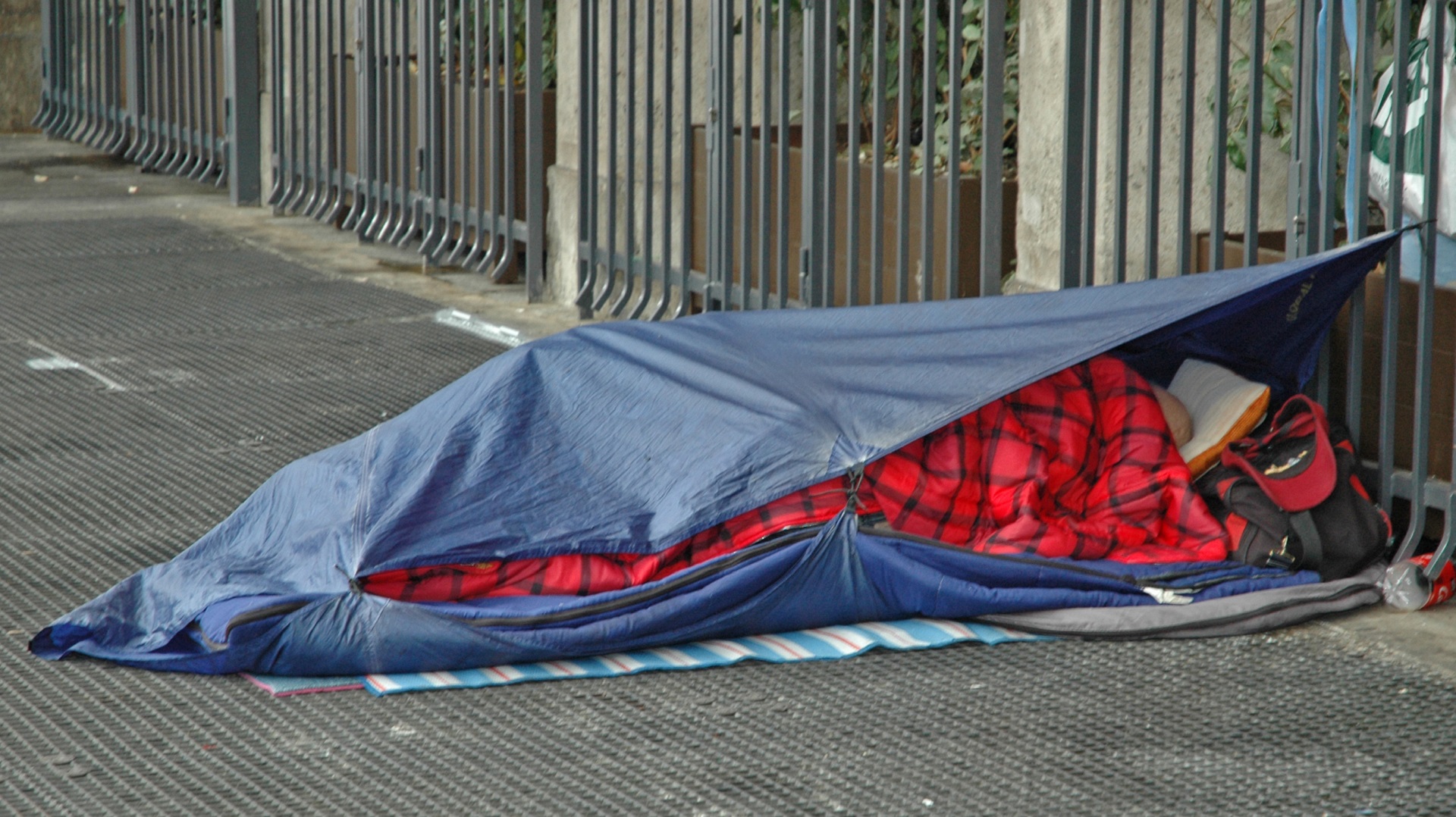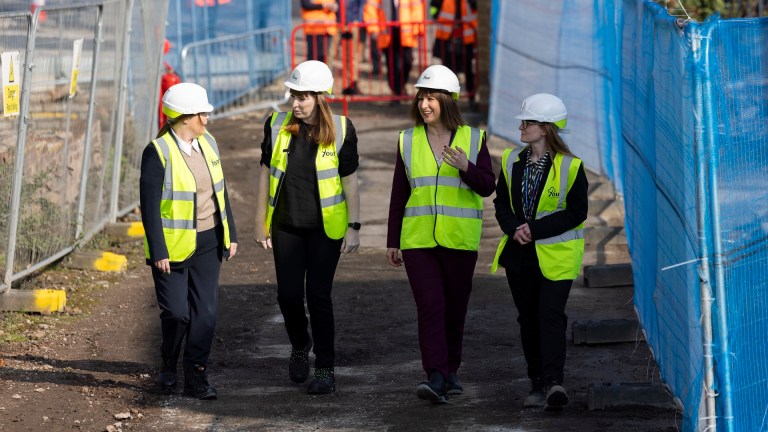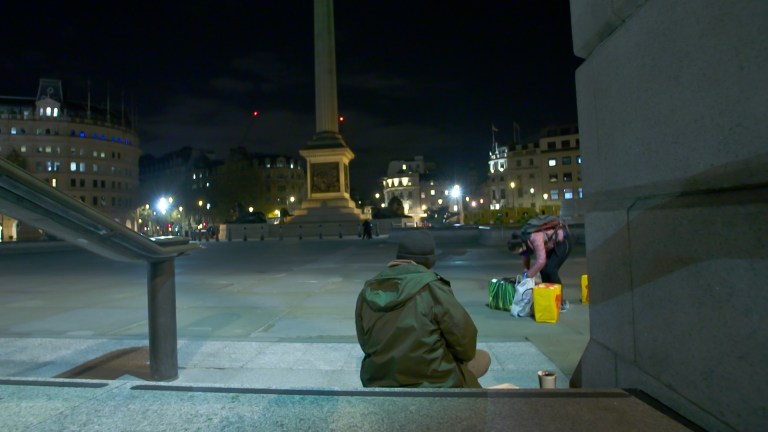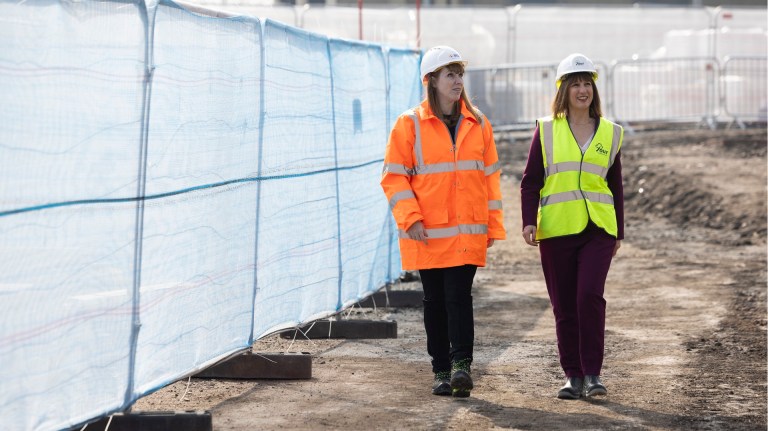Experts described the latest figures as “deeply concerning” with an influx of new rough sleepers on London’s streets. More than half of the people spotted sleeping rough were doing so for the first time, amounting to 1,844 people – a rise of 35 per cent on the same period last year.
There was also a rise in the number of people living on the streets long term with the 481 people frontline workers spotted up 13 per cent on the same period last year and 17 per cent on the previous three months.
More than three quarters of people were provided with accommodation before they had to spend a second night sleeping rough but Khan and homelessness experts have called on the government to do more to prevent people from losing their home.
Petra Salva OBE, director of rough sleeping, Westminster and migrant services at St Mungo’s, led a number of homelessness groups calling for the government to uprate benefits in line with inflation.
New prime minister Rishi Sunak increased local housing allowance rates in 2020 when he was chancellor but has not promised a fresh rise as inflation has soared.
That is seeing low-income households squeezed out of the private rented sector – last week charity Crisis warned just 11 per cent of one-bedroom properties across England are now affordable to people in receipt of housing benefit, down from 17 per cent in April.
Advertising helps fund Big Issue’s mission to end poverty
Get the latest news and insight into how the Big Issue magazine is made by signing up for the Inside Big Issue newsletter
“The rising numbers of people sleeping rough should be a wake-up call to everyone – and we are very worried that worse is yet to come,” said Salva.
“We are starting to see the serious effects of the deepening cost of living crisis on the streets and in our services, and as we head into the winter it’s very likely that, without help, many people who are just about scraping by will no longer be able to manage.
“What we need now is immediate action. We are asking the government to uplift benefits in line with inflation, increase the benefit cap and unfreeze local housing allowance rates. These latest figures show just how urgent the situation is and more must be done to prevent even more people becoming homeless.”
Khan called for private sector rents to be frozen as well as the promised renter reforms to be delivered to scrap no-fault evictions, which allow a landlord to evict a tenant without a reason with just two months’ notice.
The London mayor also called for the no recourse to public funds condition to be scrapped. The measure means migrants cannot access public funds and has been cited as a driver of destitution and homelessness.
Advertising helps fund Big Issue’s mission to end poverty
There was also a call for local authorities to be given more resources to tackle the issue while Rick Henderson, chief executive of Homeless Link, made a similar call for frontline homelessness groups facing rising inflation.
The Westminster government is still targeting an end to rough sleeping by 2024 and released a long-awaited strategy outlining how the target will be achieved in September.
A Department for Levelling Up, Housing and Communities spokesperson said: “The latest official rough sleeping statistics show that rough sleeping has fallen to an eight-year low and has almost halved since 2017.
“We are also supporting London boroughs and the Greater London Authority with up to £172m from the Rough Sleeping Initiative, which will provide thousands of beds and help individuals find work, manage their finances and access mental and physical health services.”
Billy Harding, Centrepoint’s policy and research manager, warned progress in tackling rough sleeping during the pandemic through the Everyone In scheme risks being undone without sustained investment.
“All the indications were that rough sleeping and homelessness have been rising sharply – but the scale of this increase is shocking,” said Harding.
Advertising helps fund Big Issue’s mission to end poverty
Your support changes lives. Find out how you can help us help more people by signing up for a subscription
“The experience at the start of the pandemic was that, if you get people off the streets and into stable accommodation, you give them a real chance to escape homelessness. That level of investment hasn’t been sustained since then and the prospect of further cuts to benefits and public services means we now face the terrifying prospect of record numbers of people sleeping rough during the winter months.”
Fellow youth homeless charity Depaul warned the scale of the issue could be even greater among young people.
Nicola Harwood, executive director of services from Depaul UK, said: “The increase in 16- to-25-year-olds sleeping rough in London is hugely concerning.
“We also know that young people do not always show up in the data as they often navigate their situation so that they don’t appear visibly homeless – sleeping on night buses, resting in takeaways or roaming the streets at night.”










